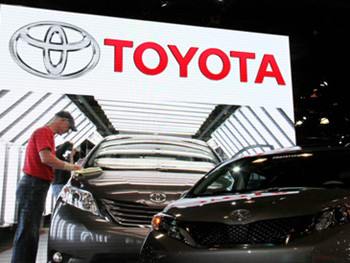 Although the decline in the sales volume of Japanese cars in China in November this year has slowed, the downward trend is still hard to see signs of reversal. At the same time, Japanese cars once once had as high as 30% of the market share in China has now dropped to less than 8%.
Although the decline in the sales volume of Japanese cars in China in November this year has slowed, the downward trend is still hard to see signs of reversal. At the same time, Japanese cars once once had as high as 30% of the market share in China has now dropped to less than 8%. The sales of the four major Japanese automakers fell further and dropped by nearly 30%
Recently, the four Japanese car companies with the largest market share in the Chinese market, Toyota, Honda, Nissan, and Mazda, respectively, announced November sales figures in China. Compared with last year, the sales volume of the four major Japanese car manufacturers generally fell by nearly 30%.
Among them, Toyota sold 63,800 vehicles, compared with 81,800 vehicles in November 2011, down 22.1% year-on-year. From January to November of this year, Toyota’s cumulative sales in China were 749,600, a year-on-year decrease of 3.3%. Honda Motor sold 41205 vehicles in November, a decrease of 29.2% from the same period of last year. In the first 11 months of this year, the sales volume was 535,313 vehicles, down by 0.8%. Nissan Motor Co., Ltd. sold 79,500 vehicles in China in November, a year-on-year drop of 30%. In the first 11 months of this year, its sales volume was 1.09 million, a decrease of 3.3% from the same period last year. Mazda Motors sold 12,187 vehicles in China in November, down 29.7% from the same period last year.
Take Toyota as an example, some media reported that Toyota’s sales target in China this year is 1 million, accounting for more than 10% of its global sales. However, in the first 11 months, Toyota's sales completion rate was less than 75% of the target. In addition, Toyota’s direct export volume from Japan to China’s market dropped by 91.3% year-on-year to only 800 units, especially the luxury brand Lexus. According to the “Nihon Keizai Shimbun†report, Toyota’s factory in Miyawaka, Fukuoka Prefecture has reduced the production of Lexus brand vehicles for export to the Chinese market. Nissan’s factory in Tochigi Prefecture will also reduce the production of Infiniti, a luxury car exported to China, and will not stop production cuts this year.
The Japanese car market share in China is again a new low and all circles take a cautious view of the recovery prospects
Although the decline in Japanese cars in November was narrower than the 90% or more decline in September and October, the market share continued to set a new low.
According to data from the China Automobile Association, a total of 98,900 vehicles were sold in Japan in October this year, a 38.22% decrease from the previous month and a 59.41% year-on-year decline. The occupancy rate decreased by 4.55 percentage points from the previous month and 12.34 percentage points from the same period of last year. This is the first time monthly sales of Japanese cars have fallen below 100,000 units since 2009, and the market share has fallen below 10% for the first time since statistics.
By November, the Japanese car market share fell further. According to statistics from Gasgoo.com, in 2008, the sales volume of Japanese-made cars in China was 1.889 million, and the market share reached 30.2%. Since then, it has continued to decline, and it has now fallen to a record low of 7.6%.
Some analysts believe that compared with the sharp drop of 54% in sales in October, the situation in November has improved, but the sales volume is still far below the level of last year, and because the impact of Sino-Japanese diplomatic disputes still exists, it is still time for the Japanese car market to pick up. day.
According to the results of the investigation on whether the Japanese car market may be revived initiated by the China-Singapore Auto Channel, 44.5% of participants believe that with the relaxation of Sino-Japanese relations in the future, Japanese cars will gradually resume sales, while another 55.5% will participate. Those who believe that the image of Japanese cars in China have been damaged, and because of all kinds of concerns, the number of car buyers in the future will become less and less, and the market will not be able to achieve recovery.
TaiFong , https://www.tfmadeflowers.com